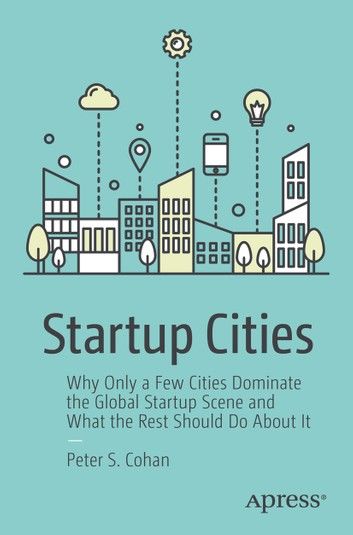| FindBook |
有 1 項符合
Startup Cities的圖書 |
 |
Startup Cities 作者:Peter S. Cohan 出版社:Apress 出版日期:2018-02-07 語言:英文 |
| 圖書選購 |
| 型式 | 價格 | 供應商 | 所屬目錄 | 電子書 |
$ 1318 |
企業家精神與小型企業 |
|---|
| 圖書館借閱 |
| 國家圖書館 | 全國圖書書目資訊網 | 國立公共資訊圖書館 | 電子書服務平台 | MetaCat 跨館整合查詢 |
| 臺北市立圖書館 | 新北市立圖書館 | 基隆市公共圖書館 | 桃園市立圖書館 | 新竹縣公共圖書館 |
| 苗栗縣立圖書館 | 臺中市立圖書館 | 彰化縣公共圖書館 | 南投縣文化局 | 雲林縣公共圖書館 |
| 嘉義縣圖書館 | 臺南市立圖書館 | 高雄市立圖書館 | 屏東縣公共圖書館 | 宜蘭縣公共圖書館 |
| 花蓮縣文化局 | 臺東縣文化處 |
|
|
This book offers a comprehensive model for explaining the success and failure of cities in nurturing startups, presents detailed case studies of how participants in that model help or hinder startup activity, and shows how to apply these lessons to boost local startup activity.
Startup Cities explains the factors that determine local startup success based on a detailed comparison of regional startup cities—pairing the most successful and less successful cities within regions along with insights and implications from case studies of each of the model’s elements. The book compares local city pairs, highlighting factors that distinguish successful from less successful cities and presents implications for stakeholders that arise from these principles.
Peter Cohan is a lecturer of Strategy at Babson College and one of the world’s leading authorities on regional startup ecosystems. Starting in 2012, he created and led Startup Strategy courses that explore four regional startup ecosystems—Hong Kong/Singapore, Israel, Paris, and Spain/Portugal. These courses are based on an original framework for evaluating why a few cities host most startup creation and the rest fail to do so. In running these courses, Peter has built a network of local policymakers, investors, entrepreneurs, and professors from which he draws practical insights for what distinguishes successful Startup Commons from their peers. The book provides vital benefits to these stakeholders.
What You’ll Learn
-
Local policymakers will know how to build a local team to set objectives for their local Startup Commons and develop a comprehensive strategy to realize those goals
-
Entrepreneurs will know how to choose where to locate their startups based on factors such as the supply and quality of talent—from chief marketing and technology officers to coders and sales people; quality of life, access to capital, customers, and mentors; and costs such as salary and real estate expense
-
University administrators and faculty will know how to take research out of their labs and house it in companies that can commercialize that research, create academic programs that will encourage more entrepreneurship among their students, and connect with local policymakers and capital providers to spur local startup activity
-
Capital providers will know how to scout out emerging startup cities where they can get access to the best investment opportunities at more favorable valuations and have greater influence on how the local startup scene evolves
Who This Book Is For
All key startup stakeholders, including local policymakers (mayors, directors of economic development, treasurers, controllers, presidents of regional chamber of commerce), entrepreneurs (CEOs, chief marketing officers, chief financial officers, chief HR officers, chief technology officers), universities (presidents; deans of faculty; provosts; professors of finance, management, and entrepreneurship; directors of international education), and capital providers (venture capital partners and associates, angel investors, bank loan officers, managers of accelerator operations)
|











